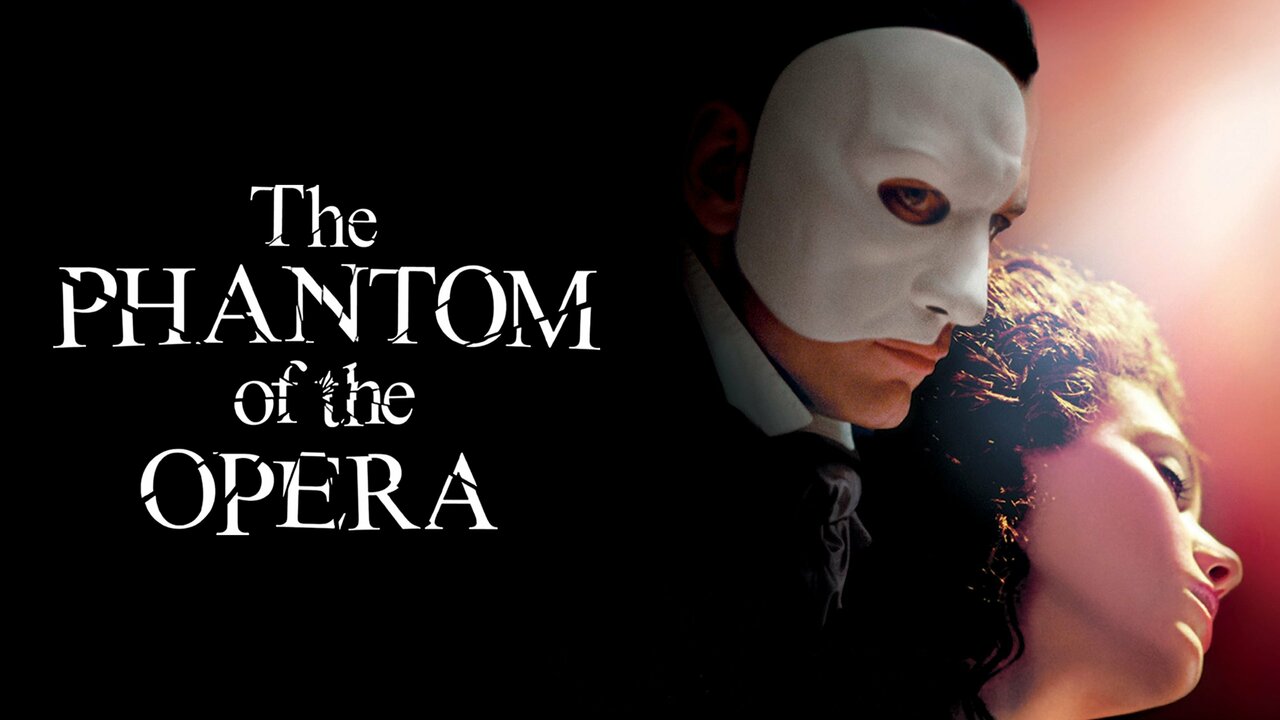
The Phantom of the Opera is a timeless classic that has captivated audiences for decades. This iconic musical, first brought to the stage in 1986, is based on the novel of the same name by French author Gaston Leroux. Set in the Paris Opera House in the late 19th century, the story follows a mysterious phantom who lurks in the shadows, obsessively haunting the theater and falling in love with a young soprano.
With its spellbinding music, elaborate sets, and heart-wrenching storyline, The Phantom of the Opera has become one of the most beloved and successful musicals of all time. In this article, we will delve into 32 fascinating facts about this masterpiece, shedding light on its origins, production, and impact on popular culture. So, sit back, relax, and prepare to be transported to the enchanting world of The Phantom of the Opera.
Key Takeaways:
- “The Phantom of the Opera” is a captivating movie based on a French novel, featuring stunning music, lavish sets, and a passionate love triangle, making it a timeless and beloved musical masterpiece.
- The movie explores themes of obsession, unrequited love, and the power of music, captivating audiences with its visually stunning scenes and talented cast, continuing to enchant fans worldwide.
The Phantom of the Opera was adapted from a French novel
The movie is based on the novel “Le Fantôme de l’Opéra” written by Gaston Leroux.
The movie was directed by Joel Schumacher
Joel Schumacher helmed the movie, bringing the tragic love story to life on the big screen.
Gerard Butler plays the role of the Phantom
The talented Gerard Butler portrays the iconic character of the Phantom, showcasing his vocal and acting skills.
Emmy Rossum stars as Christine Daaé
Emmy Rossum takes on the role of Christine Daaé, the young soprano who becomes the object of the Phantom’s obsession.
Andrew Lloyd Webber’s music is featured in the movie
The film incorporates the timeless music composed by Andrew Lloyd Webber, adding to the enchantment of the story.
The movie was released in 2004
The Phantom of the Opera hit theaters on December 22, 2004, captivating audiences with its haunting melodies and captivating performances.
The movie received three Academy Award nominations
The Phantom of the Opera was recognized for its impressive visual effects, art direction, and original song.
The movie features lavish and opulent set designs
The sets in the movie are grand and extravagant, capturing the grandeur of the opera house and the eerie atmosphere of the Phantom’s lair.
The film’s soundtrack became a best-selling album
The soundtrack for The Phantom of the Opera achieved great success, reaching the top of the charts and earning numerous accolades.
The movie showcases breathtaking operatic performances
With its stunning visuals and powerful vocals, The Phantom of the Opera provides audiences with memorable operatic moments.
The movie features a passionate love triangle
The story revolves around a love triangle between the Phantom, Christine, and Raoul, creating tension and emotional depth.
The iconic mask worn by the Phantom is a key symbol in the movie
The Phantom’s mask represents his hidden identity and serves as a visual reminder of his tragic existence.
The movie combines elements of romance, drama, and horror
The Phantom of the Opera offers a unique blend of genres, captivating audiences with its multifaceted storytelling.
The Phantom of the Opera has inspired numerous adaptations
The timeless story has been adapted into various stage productions, films, and even a musical by Andrew Lloyd Webber.
The movie features breathtaking costume designs
The costumes in The Phantom of the Opera are elaborate and meticulously designed, adding to the visual splendor of the film.
The movie explores themes of obsession and unrequited love
The Phantom’s unyielding obsession with Christine and the tragedy of his unrequited love are central themes in the movie.
The movie was filmed on location in the United Kingdom
The stunning backdrop of historic locations in the UK adds authenticity to the movie’s setting.
The movie’s cast includes talented Broadway performers
The cast of The Phantom of the Opera features actors with extensive experience in musical theater, bringing their expertise to the film.
The Phantom of the Opera is known for its memorable musical numbers
Songs like “The Music of the Night” and “All I Ask of You” have become iconic and are beloved by fans worldwide.
The movie explores the power of music to move and inspire
The Phantom of the Opera highlights the transformative effect music can have on individuals and society.
The movie’s climactic scenes take place during a performance of the opera
The tension reaches its peak as the Phantom’s presence is revealed to the audience during a crucial opera performance.
The movie delves into the Phantom’s tragic backstory
Through flashbacks and revelations, the film explores the Phantom’s past and the events that shaped his life.
The movie’s cinematography creates a visually stunning experience
The Phantom of the Opera utilizes striking camera angles, lighting techniques, and visual effects to enhance the storytelling.
The movie’s score was composed by Andrew Lloyd Webber
Andrew Lloyd Webber not only composed the songs but also created a powerful musical score that adds depth and emotion to the film.
The Phantom of the Opera has a dedicated fan following
The movie has gained a loyal fanbase that continues to celebrate its music, performances, and enduring appeal.
The movie’s screenplay was written by Andrew Lloyd Webber and Joel Schumacher
Andrew Lloyd Webber and Joel Schumacher collaborated on adapting the stage musical into a screenplay.
The movie’s story draws inspiration from Gothic literature
The themes and atmosphere of The Phantom of the Opera are influenced by Gothic novels, adding a sense of mystery and darkness to the narrative.
The movie’s production design captures the essence of 19th-century Paris
The attention to detail in recreating the Parisian setting immerses viewers in the enchanting world of the film.
The Phantom of the Opera showcases the talent of a diverse cast
The film features actors from different backgrounds and nationalities, coming together to bring the story to life.
The movie explores the price of fame and the sacrifices artists make
Through Christine’s journey, the movie examines the pressures of fame and the choices artists must make to pursue their dreams.
The movie’s promotional campaign included a worldwide contest to find a new talent
A global search was conducted to discover a new talent to play the role of Christine, allowing aspiring performers a chance to showcase their skills.
The Phantom of the Opera continues to captivate audiences worldwide
Decades after its release, The Phantom of the Opera remains a beloved and enduring musical masterpiece that continues to attract new fans.
Conclusion
The Phantom of the Opera is a timeless musical that has captivated audiences for decades. With its haunting melodies, intricate storyline, and memorable characters, it continues to be a beloved classic in the world of cinema. From the iconic portrayal of the mysterious Phantom to the mesmerizing performances by the talented cast, this movie has left an indelible mark on the hearts of millions.
Whether you’re a fan of musicals or simply appreciate a great story, The Phantom of the Opera is a must-watch film that has stood the test of time. Its combination of romance, drama, and music makes it a truly immersive and unforgettable cinematic experience.
So dim the lights, turn up the volume, and allow yourself to be transported to the elegant and mysterious world of The Phantom of the Opera. Prepare to be enchanted and enthralled, as this movie takes you on a mesmerizing journey like no other.
FAQs
Q: Who directed The Phantom of the Opera?
A: The movie was directed by Joel Schumacher.
Q: When was The Phantom of the Opera released?
A: The movie was released on December 22, 2004.
Q: Is The Phantom of the Opera based on a true story?
A: No, The Phantom of the Opera is a work of fiction. However, it was inspired by the 1910 novel of the same name by Gaston Leroux.
Q: Who played the role of the Phantom?
A: Gerard Butler portrayed the mysterious Phantom in the movie.
Q: Are the songs in the movie original?
A: The songs in The Phantom of the Opera movie are adaptations of the original stage musical composed by Andrew Lloyd Webber.
Q: How many Academy Awards did the movie receive?
A: The Phantom of the Opera won three Academy Awards, in the categories of Best Art Direction, Best Costume Design, and Best Original Song.
Was this page helpful?
Our commitment to delivering trustworthy and engaging content is at the heart of what we do. Each fact on our site is contributed by real users like you, bringing a wealth of diverse insights and information. To ensure the highest standards of accuracy and reliability, our dedicated editors meticulously review each submission. This process guarantees that the facts we share are not only fascinating but also credible. Trust in our commitment to quality and authenticity as you explore and learn with us.


